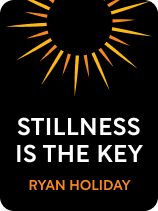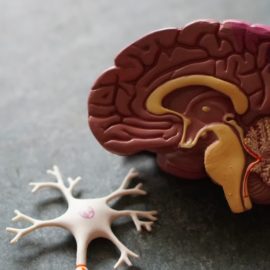

This article is an excerpt from the Shortform book guide to "Stillness Is the Key" by Ryan Holiday. Shortform has the world's best summaries and analyses of books you should be reading.
Like this article? Sign up for a free trial here.
Do you struggle with brain fog? What are some things you can do to help quiet the mental noise that prevents you from thinking clearly?
If you have difficulty thinking clearly, you need to eliminate the junk information that muddies your mind and reduce the noise around you. According to Ryan Holiday, the foundation of clear thinking is having a maintenance routine to keep your mind still.
With this in mind, here are some tips on how you can maintain mental clarity.
Maintain Your Mental Clarity
You must keep your mind clear in order to think deeply. While this may sound like a paradox, he explains that it’s not—it means learning to think right, about the right things, by quieting the incessant “chatter” in your mind and learning to consciously control your thoughts. He describes it as similar to fishing: You must be slow, still, and quiet to catch something. In this case, what you’ll “catch” will be creative insights, ideas, and solutions that otherwise would have been buried beneath the junk.
| Quieting Your Monkey Mind The incessant mental chatter most of us experience is sometimes referred to in Buddhism as the “Monkey Mind” because it’s like a restless monkey swinging constantly from branch to branch (moving from thought to thought). This constant movement renders us unable to concentrate and have mental peace and stillness. In The Surrender Experiment, Michael A. Singer describes his years-long quest to quiet this chatter in his mind through meditation. But, as Singer would come to realize, we can’t banish the monkey entirely. We must train it to behave in a tamer way so we can live peacefully with it. This is the primary goal of meditation in Zen Buddhism. |
One practice Holiday recommends for maintaining clear thinking is journaling. A daily journaling practice is the mental equivalent of regularly clearing the cobwebs out of your home. It’s no coincidence that almost every creative or intellectual genius in history kept a journal. Many people journal first thing in the morning, and some write again at the end of each day. Just write down any thoughts that come into your head. Holiday says there’s no right or wrong way to journal, but if you practice some amount of freewriting like this every day, it will clear the jumbled thoughts from your mind, allow you to reflect back on your thoughts later, and make room for flashes of insight to come through.
| The “Morning Pages” Method Julia Cameron’s 1992 book The Artist’s Way is an enduring influential work on harnessing the courage and confidence for artistic expression. Cameron says everyone has creative potential but some people have a hard time accessing and expressing it. Through practice, she says, anyone can develop artistic expression. A major foundation of her method is doing a daily practice that she calls “Morning Pages.” This technique is simply the practice of freewriting about 3 pages of stream-of-consciousness thoughts each morning after you wake up. Write any thought that comes to mind. It doesn’t matter what you write—Cameron says it’s like vacuuming the dirt out of the corners of your mind, clearing the way for creative inspiration to come through. |
Another practice for maintaining a clean and clear mind is to focus on being in the present. Holiday says we waste too much of our time and mental energy thinking about the past or future. Those do not exist at this moment. Only this moment is real and present. Remind yourself of this every day. One practical step he recommends you can take toward this goal is to not be so concerned with taking photos of everything, but enjoy moments as they are.
He also points out that engaging in creative endeavors helps keep us in the present. Presence is one thing that characterizes artists, because being creative means being in the “flow” of the moment. So, a regular practice of journaling, focusing on the present moment, and being creative can help keep your mind clear and still.
(Shortform note: Psychologist Mihaly Csikszentmihalyi says, in his book Flow, that the culture you live in can affect your experience of flow. A culture that places a high value on creativity and personal enrichment is more amenable to achieving a flow state than one that emphasizes productivity and conformity to rigid norms. Additionally, people with attention disorders may have a harder time achieving this state. If your culture or mind are not naturally conducive to the flow state, you may find it easier to achieve via a movement-oriented activity, such as yoga, martial arts, dancing, or even sex.)

———End of Preview———
Like what you just read? Read the rest of the world's best book summary and analysis of Ryan Holiday's "Stillness Is the Key" at Shortform.
Here's what you'll find in our full Stillness Is the Key summary:
- Why stillness is not just the absence of motion
- How to cultivate stillness in your mind, body, and soul
- Why you should start ignoring the news






